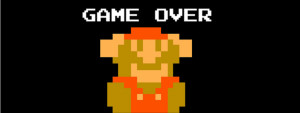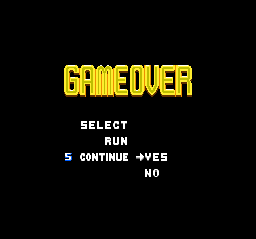 In a previous post, Ben discussed the role that motivation plays in both video games and in the classroom. I was hoping to investigate that more now, through the lens of classroom climate and setting your students up to still succeed even after failure.
In a previous post, Ben discussed the role that motivation plays in both video games and in the classroom. I was hoping to investigate that more now, through the lens of classroom climate and setting your students up to still succeed even after failure.
Many factors can feed a child’s potential to fail to participate in the learning process, one of which is a fear of failure. I refer to the fear of failing students experience under the pressures to meet the expectations placed on them by their parents, their teachers, their peers, and themselves. Often enough, this fear creates something called a performance-avoidance goal in a student. Performance-avoidance goals motivate children to do exactly what it sounds like-to avoid performing due to a fear that they will embarrass themselves by answering a question incorrectly or will appear inferior in front of their peers for attempting.
This is just one type of student achievement goal in educational psychology. Two other types of goals for students that contrast include performance-approach goals and mastery goals. Performance-approach goals act the opposite of performance-avoidance goals. These students know that they know the answer, they raise their hands with it prepared, and deliver it to receive a reward, often times in the form of praise from the teacher or self-satisfaction. The other, mastery goals, motivate students to not only provide the correct answers, but to actually grow from the challenge of addressing difficult problems, including those problems challenging enough to leave the student with a very real possibility of failure.
While students driven by performance-approach goals and even performance-avoidance goals can still have healthy academic experiences and learn well in the classroom, our students should always be encouraged to adopt the mindset of mastery. This is one beautiful effect of the ClassRealm experience system. In video games, experience is awarded to indicate improvement, not just performance in the game. And by using experience, our characters can become stronger, faster, smarter, and more successful later in the game. Sure, I could import my level 100 Charizard from my Fire Red to my Leaf Green, breeze through collecting badges, and defeat the Elite Four, but it wouldn’t give me nearly the same satisfaction as working hard to level up a whole new team to fight tooth and nail down Victory Road, getting even better after every battle.
 Video games don’t just give us opportunities to fail, but encourage us to with an extremely simple concept: the checkpoint. When you face the final boss and lose your last hit point, does the video game explode, taking every last bit of time and effort you’ve poured into it with it? Some may delete your save file, but nine out of ten video games ask you a simple question, sometimes displayed in a single word: “Continue?” Then, suddenly you’re back at your last checkpoint ready to grind, get better, and retry until you can return the favor for every time that boss has knocked you down into the dirt. The goal of every class, ClassRealm or traditional, is to instill an orientation toward mastery goals in our students—to improve for them, not to perform for us.
Video games don’t just give us opportunities to fail, but encourage us to with an extremely simple concept: the checkpoint. When you face the final boss and lose your last hit point, does the video game explode, taking every last bit of time and effort you’ve poured into it with it? Some may delete your save file, but nine out of ten video games ask you a simple question, sometimes displayed in a single word: “Continue?” Then, suddenly you’re back at your last checkpoint ready to grind, get better, and retry until you can return the favor for every time that boss has knocked you down into the dirt. The goal of every class, ClassRealm or traditional, is to instill an orientation toward mastery goals in our students—to improve for them, not to perform for us.
I thought that this would be a prudent subject to tackle as the first post on the ClassRealm blog that I make and the first one published here in almost a year. I’ve read through Ben’s blog posts after I read an article on Gamification and found my way to ClassRealm. I think that it’s time to hit the switch and retry from the last checkpoint. If we expect our kids in the class to do it, we should make the effort to model it ourselves.
Ormrod, J. E. (2011). Educational psychology: Developing learners. Boston: Pearson Education, Inc.
Recent Comments